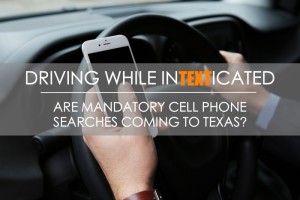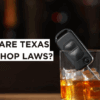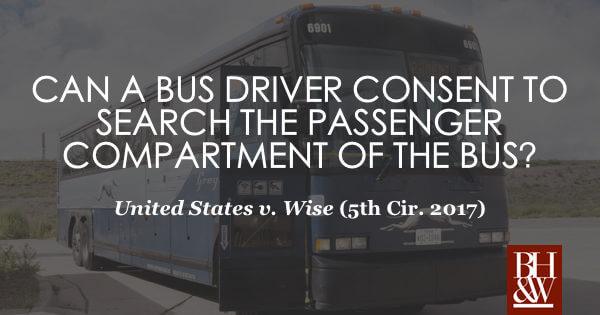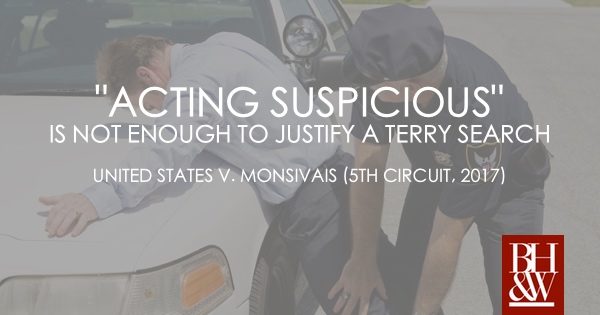Lawmakers and Forensic Engineers Introduce the Textalyzer to Combat Distracted Driving in New York
 Did you talk on your mobile phone while driving to work this morning? Check your email? Have you ever asked Siri for help selecting a restaurant for dinner while you are driving around a new city? What about the urgent text from your boss—did you glance at that while driving? Ideally, we should answer each question with an emphatic, “No!” However, we don’t live in an ideal world—many drivers on Texas roads are distracted by mobile devices every time they drive. Just look over at the driver next to you and you’ll see it.
Did you talk on your mobile phone while driving to work this morning? Check your email? Have you ever asked Siri for help selecting a restaurant for dinner while you are driving around a new city? What about the urgent text from your boss—did you glance at that while driving? Ideally, we should answer each question with an emphatic, “No!” However, we don’t live in an ideal world—many drivers on Texas roads are distracted by mobile devices every time they drive. Just look over at the driver next to you and you’ll see it.
Distraction.gov, the official government website for distracted driving statistics, reports that in 2014, over 3,000 people were killed in the United States by distracted drivers. To combat the growing problem, lawmakers in New York are reviewing proposed legislation that would allow police to obtain the mobile devices of each person involved in a car accident for immediate testing by a Textalyzer.
What is the Textalyzer?
The Textalyzer is a mobile kiosk installed into law enforcement vehicles. The Textalyzer helps law enforcement determine whether someone involved in a car accident was distracted by a mobile device at the time of the accident. Created by the Israeli-based mobile forensics technology firm, Cellebrite, the Textalyzer, known in the techie world as the “UFED InField Kiosk,” conducts a scan of the phone to determine whether the device’s voice, text, or data features were used at the time of an auto accident.
According to Cellebrite’s UFED InField Kiosk datasheet, “officers and investigators can conduct a forensically sound, logical extraction of mobile device text messages, call logs, emails, etc., and quickly view and act decisively on potential evidence.” Almost every type of mobile device can be accessed by the UFED InField Kiosk, “the UFED Series is able to extract, decode, analyze and report data from thousands of mobile devices, including, smart phones, legacy and feature phones, portable GPS devices, tablets, memory cards and phones manufactured with Chinese chipsets.”
The New York Law | New York Senate Bill S6325A
In New York, Senate Bill S6325A is currently “in committee” but progressing with strong support. If signed into law, it would require drivers who have had car accidents to provide law enforcement with all of their mobile devices so that police could conduct a Textalyzer scan on the device at the scene. Although the Textalyzer is able to “scrape” all of the data from a phone, the mobile kiosks in New York would only be able to tell law enforcement whether the device was used and at what time, circumventing some Fourth Amendment privacy arguments. Information obtained at the scene would likely become evidence to be used in a case against the owner of the mobile device. Motorists who are found “guilty” will face more serious charges and tougher penalties than those found not guilty of being distracted. If a motorist refuses to provide his or her cell phone to police officers for inspection, the new law provides that the person’s driver’s license could be suspended (similar to the refusal of breath or blood testing in a DWI context).
The bill began as a result of intense lobbying in part by the Distracted Operators Risk Casualties group, a group focused on creating tougher laws and stricter penalties for distracted drivers to protect innocent people from injuries caused by distracted driving. The co-founder of the group lost his son to distracted driving.
Mobile Forensics Data Collection and Analysis Creates Many Unanswered Legal Questions
The technology to “check” each of our phones at the scene of a car accident is here. The question remains—what will lawmakers decide to do with it? Further, unless legislatures provide clarification it, it will be up to the courts to wade through ambiguities. For example, what if drivers use “hands-free” options on mobile devices while operating a motor vehicle—how is such use different from using the radio or talking with a passenger—isn’t radio use just as distracting? Or what if a driver is distracted by a device and passes that device to a passenger after having an accident? Further, what if a distracted driver does not disclose he possesses a mobile device? What if a distracted driver has two phones, but only discloses one of the phones—the phone he wasn’t distracted by—to law enforcement? The “what ifs” are endless.
The Fourth Amendment protects from unreasonable searches and seizures—will the data itself (contact lists, the context of text messages, music playlists, the content of email, etc) be collected? If so, could the content of the data be held against a “distracted driver” in other court cases? Will we, perhaps, lose any reasonable expectation privacy altogether in our phones? Safety or privacy—which do you value more? Currently, Texas does not have a law like this in the works, but it could only be a matter of time if other states continue with this trend.










